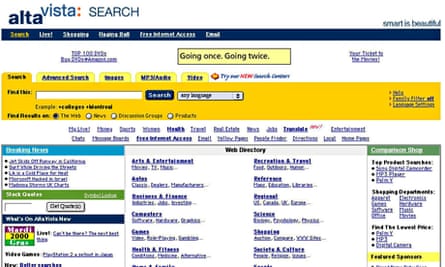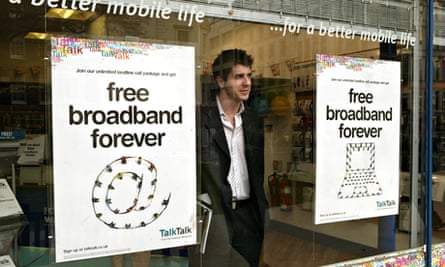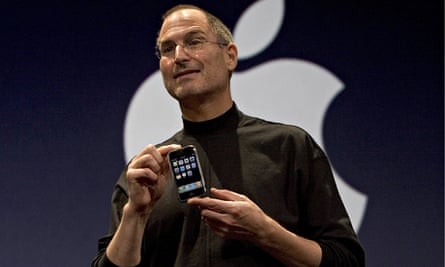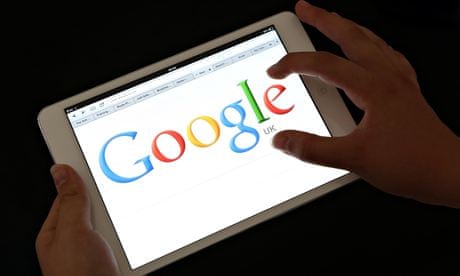It was 20 years ago this year that Fleet Street began its journey into cyberspace. The launch of the Electronic Telegraph on 15 November 1994 was the first of many landmark moments over the next two decades that have shaped the way publishers (and brands) communicate online. Here are seven:
1. November 1994: the Electronic Telegraph launches
By the end of 1994, there were just 10,000 websites. One of them was Electronic Telegraph and its launch marked the first time a British newspaper or broadcaster had a fully-fledged online presence. The Financial Times followed a year later, BBC Online in December 1997, and others by the end of the decade.
2. February 2001: Google overtakes Alta Vista

It took three years from launch for Google to surpass Alta Vista as the most used search engine. The date is notable not just for search engine rivalry but in finally sealing the supremacy of search over directories as the de facto method of navigating the web. It marked the beginning of the end for a first generation of digital "walled gardens" – why let AOL dictate your experience when the entire web was just a query away? Google provided a gateway to journalism and changed the way we wrote headlines. On the other hand, its Ad Words helped undermine print-based classifieds while Google News is still treated as both friend and foe.
3. July 2002: The first 'live blog'
The first blog post would have been a more conventional choice but the over-by-over cricket commentary – followed by minute-by-minute football coverage – is the true antecedent to the live blogs that have come to characterise the treatment of fast-moving events. From the Budget and PMQs to natural disasters and court cases, every major newspaper and broadcast website, and many media upstarts beside, use (perhaps overuse) the live blog. It's a form that has even given rise to an industry – products from CoverItLive to ScribbleLive borrow (subconsciously, perhaps) more than a little from OBO, as does Twitter. As for OBO itself, its roots go back 12 years and this very website. CricInfo may have written text commentaries first but the tone, pace and interactivity of the Guardian's efforts was the essence of Web 2.0. Even if that wasn't the plan.
4. May 2005: Broadband overtakes dial-up

YouTube launched on 14 February 2005, but it wasn't until the middle of the same year that more UK households were connected to the internet via high speed broadband than low speed dial-up, screeching modems and all. For high speed, read 1Mbps, for low speed 56kbps. If YouTube taught publishers about ease of upload and publishing, broadband adoption ensured there was an audience to watch what was being produced.
5. November 2006: Buzzfeed goes live
It's not the most influential website ever nor did it invent the numbered list-style article but Buzzfeed's launch made our list because it's symbolic of a shift in how most media sites now sell their copy. In the early- to mid-2000s, web headlines were all about the search engine but towards the end of the noughties, social media emerged as a key driver of traffic and that meant the headline morphed again. The list is a form loathed by many but by one measure, traffic, it seems to work. This article on the reason our brains absorb information easier in lists explains why.
6. June 2007: iPhone launches

Internet access via a mobile phone is not new (WAP, anyone?) but it took Apple and the introduction of the iPhone to bring the possibility fully to life. Once again ease of use, aped by others, ensured mass take up. The smartphone complemented social media – now a major entry point to most content-centric sites – and it changed consumption habits. Alongside tablets (again popularised by Apple with the April 2010 launch of the iPad), they have extended the internet day and made the internet week longer. They are impacting web design, editorial resourcing and proposition. To underscore the point…
7. November 2013: Mobile overtakes desktop
Well, if not November then some time between 1 October and 31 December last year, another milestone was passed. According to Enders Analysis, since the final quarter of 2013 more than 50% of our internet time is spent on a smart device. In terms of impact on our web consumption habits, this is no less important than the transition from dial-up to broadband or from directory to search.
So what did I miss? Social media landmarks, perhaps? Let me know by leaving a comment below.
Jon Bernstein is an independent digital media consultant and writer, formerly deputy editor then digital director of New Statesman and multimedia editor at Channel 4 News. He blogs at jonbernstein.wordpress.com.
To get weekly news analysis, job alerts and event notifications direct to your inbox, sign up free for Media Network membership.
All Guardian Media Network content is editorially independent except for pieces labelled 'Advertisement feature'. Find out more here.

Comments (…)
Sign in or create your Guardian account to join the discussion